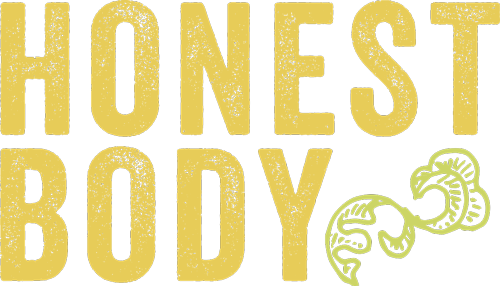[et_pb_section fb_built=”1″ admin_label=”section” _builder_version=”3.22″][et_pb_row admin_label=”row” _builder_version=”3.25″ background_size=”initial” background_position=”top_left” background_repeat=”repeat”][et_pb_column type=”4_4″ _builder_version=”3.25″ custom_padding=”|||” custom_padding__hover=”|||”][et_pb_text admin_label=”Text” _builder_version=”4.0.5″ background_size=”initial” background_position=”top_left” background_repeat=”repeat” hover_enabled=”0″ use_border_color=”off” border_color=”#ffffff” border_style=”solid”]

The Importance Of Play To The Healing (GAPS) Family
I think most of us know that play is important for kids.
Few of us, however, put the same emphasis on our OWN play, however, which is also important for adult health and mental well-being.
I know for me personally, as the mother of four, I have had long times of losing my sense of play, and almost feeling incapable of even knowing HOW to DO play. Motherhood and life are already tough jobs…and if you put GAPS™ (or any healing protocol) on top of that, you may decide it is much more important to get that stack of dishes done, rather than going out to skate on the frozen pond, lit by starlight, with your kids.
Being full of cares & responsibilities, we can lose that sense of playfulness that is so vital to living healthy & well.
Need some convincing, eh? Let’s learn a little about play.
Did You Know?
- An adult who has “lost” what was a playful childhood and doesn’t play will demonstrate social, emotional and cognitive narrowing, be less able to handle stress, and often experience depression
- Play is the gateway to vitality
- The prevalence of depression, stress related diseases, interpersonal violence, addictions, and other health and well being problems can be linked, like a deficiency disease, to the prolonged deprivation of play.
- According to the National Institute of Play, play generates optimism, seeks out novelty, makes perseverance fun (we need perseverance on the GAPS Diet, don’t we?), leads to mastery, gives the immune system a bounce, fosters empathy and promotes a sense of belonging and community.
- Nothing lights up the brain like play
- Neotony is the retention of immature qualities into adulthood, playfulness gives us a leg up on adaptability as a species
The Benefits Of Play
1. Play connects us
Sharing laughter and fun with others promotes bonding and strengthens a sense of community (or family unit). We develop empathy, compassion, trust, and the capacity for intimacy through regular play.
2. Play nourishes creativity, flexibility, and learning
Play is a gateway to learning. Play stimulates our imaginations, and helps us to adapt and solve problems. Curiosity is aroused, which leads to discovery and creativity. The components of play—curiosity, discovery, novelty, risk-taking, trial and error, pretense, games, social etiquette, and other increasingly complex adaptive activities—are the same as the components of learning.
3. Play is a remedy for loneliness, anxiety, and depression
When we play vigorously, we trigger a mix of endorphins that lift our moods. Play also gives us a respite from pain, fear, and other burdens. When we play with other people, whether they’re friends or strangers, we are reminded that we are not alone in this world.
4. Play teaches us perseverance
The rewards of learning or mastering a new game teach us that perseverance is worthwhile. Perseverance is a trait necessary to healthy adulthood, and it is learned largely through play. Perseverance and violence are rarely found together.
5. Play makes us happy
Beyond all these excellent reasons for playing, there is simply the sheer fun of it. Play is a state of being that is happy and joyous. Jumping into and out of the world of play on a daily basis can preserve and nourish our hearts, and is good for the family and community at large.
Conclusion
Play is vital to a good life AND mental health/well-being. It is time to incorporate play into that demanding schedule you have. It will enrich your life and stimulate your brain.
Ideas for Play, as well as Steps For Getting Started:
- Organize your gatherings of friends around playful activities, seasonally different…like group cross country skiing ending with a snowball fight for all ages, or a multiple age family soccer game on the local field. Add something more to your next social get together.
- Make that next phone call to a friend result in a bike ride together. Taking some measured risks is even better. My hubby “plays” when he feels the thrill of rushing his mountain bike down a single track with a friend, with a bit of an edge of danger if he is not alert and engaged.
- Do something for the sheer fun and adventure of it. Here in Vermont where I live, there are plenty of mountain river swimming holes. People swim in them, but what is really fun is to wear some sturdy water shoes and “boulder” up river, jumping from rock to rock, dipping in the swimming holes, figuring out how to navigate around small waterfalls…adventure and improvisation are so invigorating.
- Put YOUR play as a priority and find what is the most fun for you…YOUR way to blow off some steam. For me this is cranking the music up in the house, and dancing for all I’m worth. Music + movement is exhilarating. For someone else this might be running, swimming, biking, skateboarding, skydiving, playing UNO or a Charades game with friends, karaoke on the Wii with friends, storytelling, having a murder mystery dinner, soccer, contra dancing, anything!
- Play with your kids. Teach them how to do adulthood well, because they are watching. I feel I had great examples of play growing up. We were taught to work hard, but we were also taught to play hard…our parents were careful to maintain free time for playing as a family…hiking, tubing down the river, biking, building a rink so we could have friends over to play hockey, and instigating hay rides and in-the-dark-corn-tag on summer nights with all of our friends.
- Look back to the most joyful and playful time in your life, and connect that kind of motion to your life now.

[/et_pb_text][/et_pb_column][/et_pb_row][/et_pb_section]

